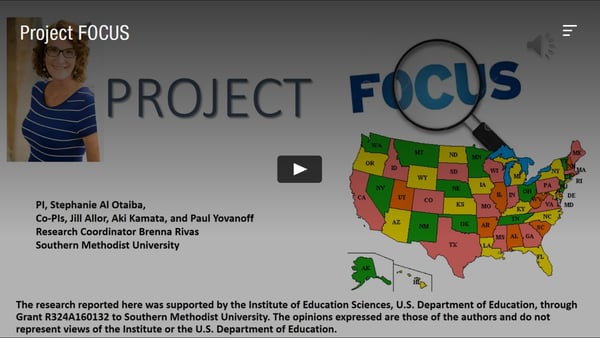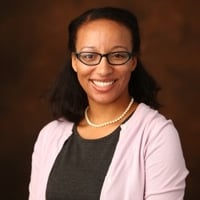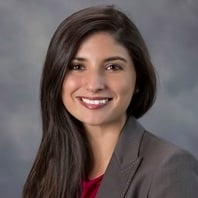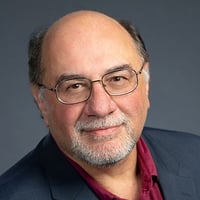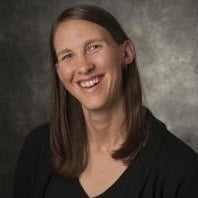Addressing Challenges in
Education and Learning:
A Complete Guide to Earning a Ph.D. in Education
Consider this — our society relies on educators to help us learn and grow, and in turn, change the world for the better. But who do our educators rely on? A logical thought would be the supervisors above them, their mentors, or their fellow educators who work in the field with them day in and day out.
While all correct answers, ultimately educators and supervisors alike rely heavily on the latest scientific research in the field of education to inform their methodologies and practice. Solid, data-proven research drives education policy and affects how educators operate in their interactions with students, parents, and fellow educators, so it is imperative that new research is continually being performed.
To address this need, SMU houses a Ph.D. in Education program that is designed primarily to encourage and produce scientific research in the field of education and cultivate academics in this area. This resource aims to demonstrate the value of that research, explore current research occurring in the field, and exemplify how SMU offers high-caliber research opportunities to its doctoral candidates.
Why Earn a Ph.D. in Education?

Albert Einstein may not have been speaking of the challenges of our current day, but his words ring true nonetheless. Serious issues within education today such as creating and implementing educational models for children with learning and other disabilities, developing accurate ways to measure student success, and studying the impact of paying for higher education — all of these problems must be addressed through evidence-based methods of research.
For these changes in teaching methodology, policy, and educational practices to occur, proper and thorough research must first be conducted to inform educators and administrators of the most effective applications. This research must then be followed by a translation of research-to-practice.
The goal of a Ph.D. in Education program is to cultivate scholars — those who are passionate about conducting and publishing research. Education is ideally an “evidence-based” practice, centered on scientific inquiry. High-caliber, cutting-edge, and quality research is essential for improving educational practice in our world today.
Download today "Addressing Challenges in Education and Learning: A Complete Guide to Earning a Ph.D. in Education"!
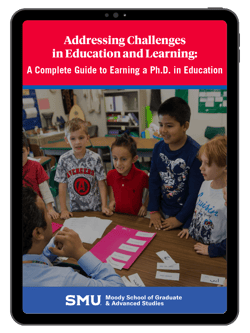
Access the full guide at any point by saving it to your laptop to reference while you navigate applying to graduate school.
Receive this resource as an eBook!
Career Paths Available With A Ph.D. In Education
It is common to confuse a Ph.D. in Education and an Ed.D. as synonymous programs. While this guide will focus exclusively on the Ph.D., it is important to discuss the differences between the two graduate degrees, as the intent of the two programs and available career paths differ greatly. The purpose of attending a Ph.D. in Education program is to develop skills as a researcher, to continue to further the collective understanding of education through scientific research, and to position yourself for a career in a role that will allow you to disseminate that research. In short, a Ph.D. is about one main thing — research.
On the other hand, an Ed.D. program has an administrative focus and explores the practical applications of research and study. An Ed.D. program is grounded in fieldwork and hands-on study, as opposed to theory and philosophical exercises. The goal of an Ed.D. program is to prepare practitioners for roles within administrations, translating and implementing the research that is performed by Ph.D. students.
Those who pursue a Ph.D. in Education are serious about science, about performing research, and about making unique contributions to the existing body of knowledge. Upon graduation, these highly proficient researchers tend to seek employment in one of three areas: academia, public organizations or large school districts, or private for-profit companies. The types of research that can be performed by those who hold a Ph.D. in Education are quite different and vary depending on the profession they choose to enter. In academia, externally funded research focuses on intervention development using experimental research designs. Research in large school districts and for-profit companies tends to center on program evaluation and summarizing existing data.
Academia
Ph.D. graduates who pursue a career in academia most frequently find employment through post-doctoral training, an associate professorship, or as a full-time professor. Frequently students pursue tenure-track positions because of their job security and increased pay. These roles entail a combination of teaching, student advising, and continued research. The compensation for these different roles varies depending on the location and whether the institution is a public or private university. The average salary for an associate professor at a public institution is $90,101. Full-time professors can expect to make an average of $127,572 per year. Those in post-doctoral training positions can expect to earn $48,229, in addition to their continued research being fully funded.
Public Organizations or Large School Districts
Ph.D. graduates who pursue a research-driven career in a public organization or large school district can expect to secure positions such as a Director of Curriculum, Instruction, and Assessment or a Research Fellow for Education Policy Studies. These roles include responsibilities such as developing learning plans and curriculum solutions based on their research findings. These professionals are also in charge of planning, aligning, and developing the curriculum to meet program objectives and implementing testing to demonstrate program success. Frequently these positions are available through public policy think-tanks. The average salary for these types of positions ranges from $80,000 to $110,000 depending on job location and years of training.
Private For-Profit Companies
Like those doctoral candidates who are seeking a job in the public sector, those who wish to gain employment working for a private company should focus on highlighting their passion for research and evaluation, coupled with the transferable skills they garnered through time in their Ph.D. program. Career options include positions like a Research Scientist for National Education Assessment or a Senior Learning and Development Specialist. These positions are research intensive and often include elements of management, assessment, evaluation, and reporting. The average salary for these types of positions ranges from $90,000-$120,000 depending on job location and years of training.
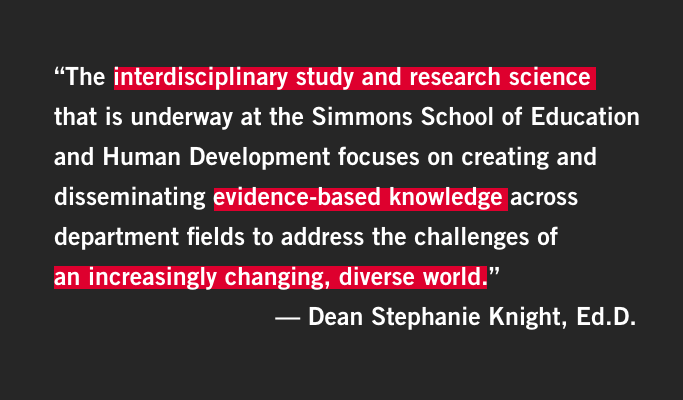
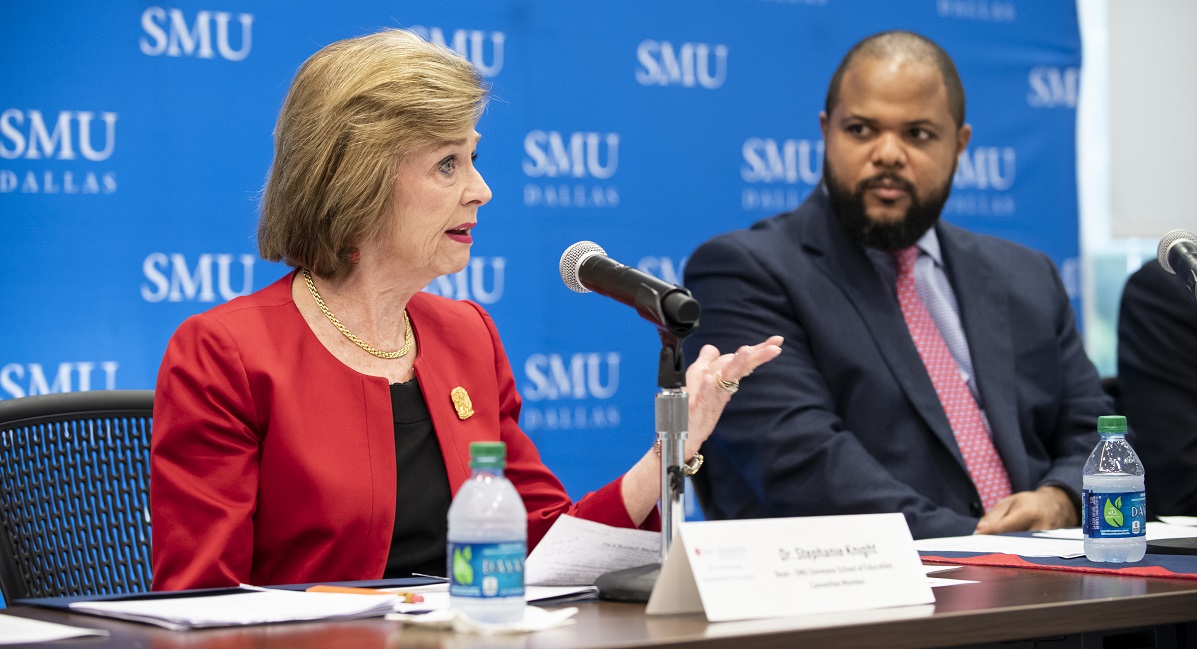
An Interdisciplinary Endeavor: Exploring the Latest Research in Education
In order for the Simmons School to direct its best efforts to researching and developing new and revolutionary understandings of education as a science, doctoral students are encouraged to focus chiefly on the sciences housed within the department. At times, students may find relevant need to explore beyond the School of Education and Human Development. For example, students who seek to specialize in statistical modeling may coordinate coursework and study with the Department of Statistics under the supervision of a Simmons faculty member.
Within the Simmons School, there are several areas of research that align with its internal departments including Applied Physiology, Policy and Leadership, and Teaching & Learning. Another area of research that some Ph.D. students choose to pursue is advanced research methodology and measurement. As with most Ph.D. programs, within these departments, students specialize in an area of study that aligns closely with their advisor (e.g., math education, special education, higher education policy.) All tenure-track faculty within their individual program of research may have a doctoral student studying under them.
Graduates from SMU receive great career and leadership development along with deep technical knowledge. Every Ph.D. student works with a faculty mentor to determine a course and research plan that is individualized to enable each student to reach their full potential. Ph.D. students are encouraged to meet frequently with their faculty mentor and discuss their progress as well as their concerns. Graduate students often find that this personalized attention and mentorship makes all the difference in the pursuit of their degree.
REQUEST MORE INFORMATION
Want to learn more about SMU’s Ph.D. program in Education?
Contact us today, we will be in touch!
Highlighting the Current Research of SMU Education Faculty
SMU’s outstanding Education faculty are widely known for their leadership and impact in the field. Faculty within the Simmons School publish regularly in high-impact journals, present at acclaimed conferences, and collaborate with leaders in the field.
Out of the many current faculty research projects that SMU Simmons doctoral students work with, here are two that provide a sampling of the caliber of research underway at SMU. These faculty demonstrate the kind of research SMU performs characterized by an ongoing, continually funded series of research projects, sponsored by notable agencies, and in collaboration with other non-SMU scholars.
Project FOCUS: Exploring Response to Intervention with a Focus on Students Receiving Tier 3 and Special Education for Reading Disabilities
Principal Investigator: Dr. Stephanie Al Otaiba
Co-Principal Investigators: Dr. Jill Allor, Dr. Paul Yovanoff, Dr. Aki Kamata
Funded by the Institute of Education Sciences (IES) in conjunction with the U.S. Dept. of Education and Southern Methodist University, this project aims to identify and examine a key set of malleable variables (those that can be changed by the school) that are associated with outcomes for students in Tier 3 or in special education with reading disabilities. The study is being conducted in more than 7 states in collaboration with faculty and doctoral scholars from the National Center for Leadership in Intensive Intervention. The team of SMU-based researchers includes PI Dr. Stephanie Al Otaiba, Co-PIs Dr. Jill Allor, Dr. Paul Yovanoff, and Dr. Aki Kamata, as well as Dr. Brenna Rivas, Dr. Francesca Jones, Dr. Pooja Shivraj, Margaret Pyffer, Dominique Lyons, Damaris Florez, and Miriam Ortiz. Watch this video describing the project.
The "Promise" of Free Tuition and Impacts on College Enrollment: Differences Across Race and Socioeconomic status
Principal Investigator: Dr. Denisa Gandara
Co-Principal Investigator: Dr. Amy Li
Funded by the American Educational Research Association (AERA), Dr. Gandara has received one of 3 AERA research grants awarded in 2017 to study free college or "Promise" programs with co-PI Dr. Amy Li (University of Northern Colorado). Promise programs, which cover college tuition (and sometimes other costs) for all eligible students in a geographic region, have proliferated across the United States, with recent adoptions in New York, California, and Dallas County. Dr. Gandara and Dr. Li's study is the first to examine — at a national scale — which groups of students benefit most from these programs. Specifically, the study examines how enrolments change at community colleges that are subject to Promise programs, and how effects vary by Promise program design features.
Learn about the Simmons Education Research Faculty
Keep reading about the faculty by exploring Simmons faculty's backgrounds and their research projects.
Dominique Baker
Assistant Professor
Ph.D., Vanderbilt University
Research Interests: Student financial aid, affirmative action, and policies that influence the ability to create an inclusive & equitable campus climate.
Akihito Kamata
Executive Director & Professor
Ph.D., Michigan State University
Research Interests: Psychometrics and educational and psychological measurement, focusing on implementation of item-level test data analysis methodology.
Anthony Petrosino
Professor & Associate Dean
Ph.D., Vanderbilt University
Research Interests: Students understanding of experimentation, engineering education and the development of expertise.
Stephanie Al Otaiba, Patsy and Ray Caldwell Centennial Chair in Teaching & Learning
What courses do you teach at SMU and how long have you been teaching here? What is the highest degree you hold and where did you receive it?
What courses do you teach at SMU and how long have you been teaching here? What is the highest degree you hold and where did you receive it?
I have been at SMU for 8 years. I hold a Ph.D. in Human Development, specializing in literacy and special education from Peabody College at Vanderbilt University. I have taught a variety of courses for graduate students working on their masters in education, including Literacy Consultation and Collaboration, Foundations of Special Education, Literacy Assessment, and Advanced Literacy.
I also teach doctoral students. I have taught Foundations of Teaching and Learning and a seminar-type course Synthesis and Integration. In addition, I mentor doctoral students and have provided a number of independent studies.
What initially interested you in teaching on a graduate level?
What initially interested you in teaching on a graduate level?
My interest was really to help teachers understand evidence-based practices to improve literacy outcomes for all children, but especially for children who struggle to learn to read. When I taught, I always wanted someone to show me how to do better and to learn more about how to improve outcomes. I still hear from some of my former children I taught in the UAE and I hear from many of my graduate students that they still love teaching and are eager to use research in their classrooms.
What research have you been involved in at SMU or elsewhere? Do you have a favorite research project?
What research have you been involved in at SMU or elsewhere? Do you have a favorite research project?
My area of expertise is in early literacy interventions. I have been involved in several collaborative research projects at SMU that have been funded by the National Institute of Health and by the Institute for Education Sciences. I have helped develop curricular materials including a comprehensive program, Friends on the Block, with Dr. Jill Allor and Dr. Jennifer Cheatham. We piloted the program with students with intellectual disabilities and we are expanding the program to test it with other populations and in other settings as a tool for teacher training and as an after-school tutoring program.
With another colleague at Georgia State, Dr. Puranik, I developed a peer-assisted learning program for kindergarteners in writing. We have just been awarded a second federally funded grant to test its efficacy. With Dr. Chris Lemmons, we conducted a series of studies to tailor reading interventions based on the phenotype of Down Syndrome.
Another set of research has involved field testing programs for struggling readers to learn more about what works to help them and under what conditions. In upper elementary classrooms in high need schools, we have worked with children at risk for or who have learning disabilities. Working with colleagues at Vanderbilt, we randomly assigned students to either a typical school intervention condition or to receive a reading intervention that our team provides. We tested Passport Voyager in two large scale randomized control experiments and found that students in our intervention had significantly better comprehension scores and that the benefits extended even through the fall of fifth grade. Now we are collaborating with the same colleagues at Vanderbilt to test the effects of another intervention, Lindamood Bell, and to learn if it is more effective when we embed some Growth Mindset training.
We are also currently analyzing data from a very large scale study exploring the relations among what teachers know about response to intervention, how their school implements response to intervention, and student reading growth. We hypothesized that students in high needs schools will show strong reading gains when their teachers are knowledgeable and have access to actionable student data to guide their instructional decisions. We are focusing on students who are receiving intensive interventions or special education services.
What about studying Education poses the biggest challenges for students?
What about studying Education poses the biggest challenges for students?
In my experience, it is challenging once coursework ends for Ph.D. students to keep focused on their dissertation. There are many distractions and it takes perseverance.
Meet Candace Walkington, Associate Professor in Teaching and Learning
What courses do you teach at SMU and how long have you been teaching here? What is the highest degree you hold and where did you receive it?
What courses do you teach at SMU and how long have you been teaching here? What is the highest degree you hold and where did you receive it?
I teach courses for pre-service and in-service mathematics teachers, both in our educator prep program and in our “Master Mathematics Teacher” specialization. I also teach Educational Psychology, as my background is in the learning sciences. I’ve been teaching at SMU for 7 years. I hold a Ph.D. in STEM Education from the University of Texas at Austin.
What initially interested you in teaching on a graduate level?
What initially interested you in teaching on a graduate level?
I came to SMU because the School of Education had a tight-knit community of really stellar scholars. My research interests fit well with the other faculty, and there were a lot of opportunities to teach and develop courses for math teachers.
What research have you been involved in at SMU or elsewhere? Do you have a favorite research project?
What research have you been involved in at SMU or elsewhere? Do you have a favorite research project?
I have conducted dozens of different research projects in mathematics education and learning sciences since coming to SMU. I specialize in research relating to mathematics education and learning sciences. Much of my work focuses on motivation theory, embodied cognition, and funds of knowledge. Some of my current projects are:
- designing and studying a motion-capture video game for learning high school geometry
- creating and assessing digital activities where students learn about how algebra is relevant to careers they are interested in
- exploring how elementary students engage in problem-posing as they create their own “math walks” around their school
- designing an augmented reality simulation that creates modifiable holograms of geometric shapes that learners can interact with.
What about studying Education poses the biggest challenges for students?
What about studying Education poses the biggest challenges for students?
I think the biggest challenge for Ph.D. students is becoming passionate about educational research, and finding a research area that is feasible, appropriate, and has this fit. A Ph.D. in Education is all about becoming a strong researcher and getting a lot of technical training in the skills necessary to conduct studies and analyze datasets.
Learn More About the Simmons School of Education at SMU
The mission of the Simmons School of Education and Human Development is “to integrate theory, research and practice of education and human development; promote academic rigor and interdisciplinary collaboration; educate students for initial certification and professional practice; and nurture collaboration across the academic community.”
The mission of the Simmons School is realized particularly through its high-quality research-driven Ph.D. program. The Simmons School emphasizes education science and tries to cultivate the next generation of quality, highly productive, and relevant scientists. The research faculty advising Ph.D. students are unique as scientists, and mentor advisees to accomplish high impact scientific research, publication, teaching, and more.
SMU’s Ph.D. in Education: The Premiere Program for Research-Driven Graduate Students
SMU’s Simmons School of Education and Human Development hosts a distinguished program among education research institutions, due in large part to its high-profile faculty research and scholarship and the dedication of its students. Education Ph.D. candidates at SMU are highly productive, frequently publishing their research in top-tier journals, presenting at acclaimed meetings and conferences, and making other significant contributions to the field.
Other aspects of the Education Ph.D. program that set it apart as a leader in the field include:
- State-of-the-art facilities (buildings, classrooms, work areas, and resources)
- Apprenticeship model of advising and the opportunity for students to work one-on-one with high-quality research faculty
- Authentic research experience
- Higher education teaching is supported via adjunct appointments
- Applicant Open House (top applicants are hosted at SMU for two days providing an opportunity for interviews and inquiry)
The Simmons School’s high level of community engagement is another mark of its excellent reputation within the Education research field. In the surrounding public and private schools, the Simmons School sponsors many research programs. SMU’s presence in these schools creates opportunities for engagement with students, parents, teachers and school administrators. Much of the Simmons School’s community outreach occurs through The Budd Center. The Budd Center’s mission is to involve communities in education and work to meet the needs of students living in poverty in the Dallas-Fort Worth area. One of the most desirable skills for Simmons Ph.D. graduates is leadership. Engagement with the community is one way for students to recognize and develop this strength while making a tangible difference in their community.
Another aspect of the Education Ph.D. program at SMU that sets it apart is its ability to procure highly-sought after research funding. Funding for research is highly competitive and the agencies, institutions, and government organizations that regularly support the research of SMU faculty and students is a testament to the caliber of work performed here. In recent years, Simmons faculty and students have received funding from:















Meet Current Graduate Students:
Their Take on Earning a Ph.D. in Education
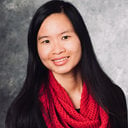
Sumei Wu, Education Ph.D. Candidate
Tell us a little about yourself.
Tell us a little about yourself.
I came to SMU as an international student for my Master’s in Education with certification in 2013 and I’m currently pursuing my Ph.D. in Education at SMU. I am from China. Before I chose to study abroad, I earned my bachelor’s in English Language and arts in China. Since I was a child, I have had a passion for becoming an educator because I consider education as a sacred field that cultivates the younger generation’s minds and helps them become better citizens. I still hold those passions and beliefs today.
What resources do you feel set SMU apart from other Education Ph.D. programs?
What resources do you feel set SMU apart from other Education Ph.D. programs?
In my opinion, the primary resources that set SMU apart from other Education Ph.D. programs are:
1) We get to know our Ph.D. peers well and support each other throughout the program because it is cohort-based. In other words, we take the same methodological courses together as a cohort during the first two years and then take independent courses later based on our individual research interests.
2) We have more support and resources because of our small program size, with an average of 6-8 Ph.D. students.
3) We are well-supported by SMU travel funding grants with a range from $1500 to $2000 per student per year. With such substantial financial support, we have been able to travel both domestically and internationally for conferences to disseminate our research outcomes and to network with leading scholars in the field of our research interests.
Tell us about some of the research you’ve done over the course of your years of study.
Tell us about some of the research you’ve done over the course of your years of study.
I have participated in three research projects over my three years of study in the program. My favorite project so far has been a telecollaborative project that integrates Virtual Reality Simulations (VRS), because it was the first project I took ownership of from the start. I learned how to construct an
IRB protocol, to design tasks for the participants based on the literature, to create online discussion protocols, to collect data over the course of the project, and in the end, to analyze the data and write up reports for conference presentations and publications.
I have also produced, as the first author, two paper proposals for two international conferences and one book chapter proposal. I am particularly proud of this project because it is an innovative approach to the field of telecollaboration and integration of VRS technology. My work provides opportunities for teachers across geographic locations and cultures to interact with computerized avatar students in real time, so they can not only co-construct a lesson plan but also enacted that lesson plan.
SMU’s Partnership with the National Center for Leadership in Intensive Intervention
The National Center For Leadership In Intensive Intervention (NCLii), is a consortium funded by the Office of Special Education Programs (OSEP). This center strives to “prepare special education leaders to become experts in research on intensive intervention for students with disabilities who have persistent and severe academic (e.g., reading and math) and behavioral difficulties.”
SMU is proud to be one of the 7 partner members within the consortium. The project provides generous support (i.e., tuition, stipend, research funding) for Ph.D. training and scientific research. In 2017 the Simmons School hosted the NCLii annual meeting. SMU currently has four NCLii scholars scheduled to graduate in Spring 2020.
Specializing within the Education Ph.D.
While formal specializations are not noted on doctoral transcripts, SMU more than prepares its Ph.D. students to set themselves apart as a highly-qualified expert in their given area of research. Through research performed under renowned faculty and the opportunity to be published in distinguished academic journals and appear at respected conferences, students will develop a reputation of expertise in their particular area of study, which demonstrates that the doctoral candidate is unequivocally qualified to perform research in their chosen field.
The following are the Simmons School of Education and Human Development academic departments whose faculty advise and mentor Ph.D. students. The faculty programs of research are varied and are best considered by viewing the Simmons School website.
- Department of Teaching and Learning
- Department of Education and Policy Leadership
- Department of Applied Physiology & Wellness
Advancing the Field:
Stories and Resources for Graduate Students
Advancing the Field is a weekly blog that offers prospective graduate students insight and advice as they consider the challenges and exciting possibilities that come with getting a graduate degree.
Subscribe to the Blog Today!
Admissions and Degree Requirements
To be considered for priority funding (e.g., Fairess Simmons Scholarship and University Fellowship) applicants should submit the required documents by December 1st. The Ph.D. program is designed to augment an existing Master’s degree or equivalent preparation.
Admission Requirements
Admission requirements
Applications should include the following:
- Official copies of all graduate and undergraduate transcripts where you have received 9 or more credit hours or a degree has been conferred. (Official Transcripts must be sent directly by the institution to SMU.)
- Scores from the verbal, quantitative, and analytical writing sections of the Graduate Record Exam (GRE) taken within the last five years, use the institution code 7464. Applications and admission decisions rest on much more than the GRE scores; however, the preferred scores identified Quantitative (150 new scale, 630 old scale) and Verbal (153 new scale, 500 old scale) scores as a minimum.
- Statement of professional purpose
- Academic writing sample
- Three letters of recommendation
Degree Requirements
Degree Requirements
Doctoral students must complete a minimum of 54 credit hours during a three-year full-time program prior to the dissertation year. Students must enroll in a minimum of 9 credit hours of coursework per term and be full-time residents in the Dallas area for the first three academic years of the program.
As the Ph.D. program is a research-centered program, in addition to coursework, students apprentice for 20 hours each week on research projects during the academic calendar year, for which they typically receive fellowship stipends, benefits, and waived tuition.
Additional steps must be completed to meet the degree requirements for the Ph.D. program:
- 60 hours of coursework (up to 6 credit hours can be transferred)
- Qualifying exams
- Major area paper
- Conference presentation
- Manuscript submission
- Dissertation with an oral defense
- Teaching competency
Connect with the Simmons School of Education and Human Development at SMU
Our educators and communities rely on informed scientific research to help them develop the best practices, methodologies, policies, and plans to reach students and thereby change the world. If you are passionate about education research, we invite you to contact the Simmons School and request more information today to learn more about our faculty, research, and Ph.D. program.
The Simmons School faculty are proud of their work, so take a moment to look at the current faculty research projects and see if one of their specializations lines up with your area of interest. There are so many new areas of important educational research that need to be tackled. If you are ready to get started on your Ph.D. journey, reach out today to start an application. We look forward to hearing from you very soon!
Request More Information
Want to learn more about SMU’s Ph.D.
program in Education?
Contact us today, we will be in touch!
JUMP TO SECTION
- Why Earn a Ph.D. in Education?
- Career Paths Available With A Ph.D. In Education
- An Interdisciplinary Endeavor: Exploring the Latest Research in Education
- Leading Faculty: Thought Leaders in Education at SMU
- Learn More About the Education Department at SMU
- Admissions and Degree Requirements
- Connect with SMU

